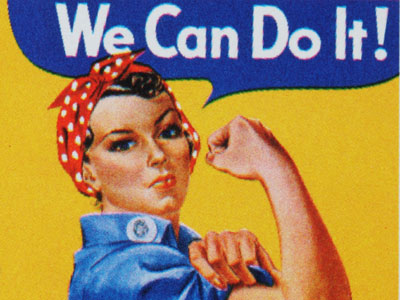BY ZOE WICKENS
Feminism is one of the most widely talked about subjects today. Rarely can a week pass without there being something about feminism in the news or another celebrity announces they are a feminist or, more controversially, say that they do not identify as a feminist. A common misconception is that only females can be feminists when actually, anyone who believes in equality between sexes through equal opportunities in careers, pay and in positions in organisations can identify as a feminist.
Social Media websites and apps are the places to go to read the many arguments and debates about feminist issues, you’d be surprised at how many comments sections of youtube videos and replies on Twitter, Facebook and Instagram disintegrate into full on insulting conversations. Famous women only have to post a photo of themselves to end up with reams of abuse from other Social Media users about the way she looks. Beyoncé frequently comes under fire for her revealing outfits, despite her strong messages highlighting the importance of feminism in today’s society. Emma Watson launched the He for She campaign last year and has gained global support for this endeavour, and even she was threatened by people on the internet, who planned to release leaked naked photographs of her. Madonna sparks many debates about whether it’s seen as acceptable to dress provocatively at her age and act as if she is a much younger woman. The end of February saw two people jailed for sending extremely abusive and threatening messages over Twitter to feminist campaigner Caroline Criado-Perez, who is among many to have received abuse and threats over Social Media. Is no one safe?
The question ‘have you experienced sexism on any Social Media account’ is always going to reveal interesting stories, particularly with the advantage of being able to be anonymous over the internet. Amber, a feminist English Literature student answered “Yes. I have been called every name under the sun and threatened with rape.” How did she deal with this? “I sarcastically told them that they were immature, nasty little boys, reported them online and blocked them.” Ana, a feminist Creative Writing student replied “most of the time, I ignore the comments, but if I have something witty to call them out with, I may call them out on their behaviour.” These are enlightening examples how people react and whether they choose to ignore the abuse or not or indeed whether they can block it all out, regardless of whether it is hurtful or not.
Many feminist campaigners question why more people do not identify as feminists. There is a surprising amount of hostility towards feminism and those who support it, which poses the question of why all the hate? Ana says “I think everyone should identify as part of the movement that is striving for equality” as feminism is still dismissed by many all over the world, even by women who blanch at the idea of being associated with the more hardcore feminists. Amber makes the interesting point that “people who say stuff like “I’m not a feminist, I’m an equalist” need educating, not criticising”, perhaps suggesting that if feminism was spoken about more in public, people would understand it better. Zowwi, a feminist Photography student highlights the importance of being proud to be a woman, or a male supporter of female rights. “They do not have to say they are feminists in order to do this but putting a label on it does seem to give it more importance.” How about the male perspective on what feminism is? Charles, a feminist Journalism student puts forth “I feel as a man who identifies as a feminist that people should think hard about what they believe feminism to be, it’s very easy to get caught up in the media hype of the word feminist while forgetting its true meaning.” The definition of what feminism is can be blurred by Social Media, as every one is going to have a different idea depending on how it has affected their lives.
A much talked about issue in the media is celebrities saying they are not feminists, because they have “never been affected” by it. One example of this is American actress Kaley Cucoco-Sweeting, best known for her role in the television show The Big Bang Theory. She received a lot of criticism when in an interview last year, she answered the question ‘are you a feminist’ with “is it bad if I say no?” She was also quoted as saying “I like the idea of women taking care of their men” which prompted many comments sparking outrage at this. Amber believes more people should identify as feminists but wouldn’t “criticise” anyone for not “unless they’re openly insulting feminism.”
In a world where telling people their opinions, beliefs and ideals are wrong can be seen as amusing and incredibly easy. Users of the internet and Social Media in particular, hugely take advantage of this. You find yourself asking why others want to try and tear you down in whatever way they can. When asked whether people should be allowed to criticise those who do not identify as feminists, Ana said “as that goes against what feminism stands for, I don’t think so, but I do think that open discussion about the topic should be encouraged.” Is criticising someone who not believing in the same ideals as you ever okay? “You can’t attack someone’s moral choices because it takes away the very framework of being a feminist. If a person has the same ideals as a feminist but feels negatively towards the connotations of the word then criticism towards them is only more likely to push people away”, says Charles. Zowwi suggests that in general, “we should be less judgmental.” This is sadly, easier said than done. “I think you should still subtly preach and let people know what your views are, but without being critical.” A brilliant idea, but problematic when in effect as it seems there will always be those who single-mindedly preach without any consideration to other points of view.
As comforting as it is to imagine a world where feminism is not needed and no one ever criticises someone else for their beliefs and choices, it will never happen. Perhaps all we can do is just try and be more understanding of the fact that everyone is likely to have different views. As Amber quite rightly states “being nasty to people who don’t know any better will get us nowhere.”


